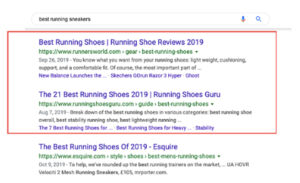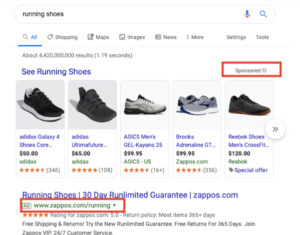Digital marketing is an umbrella term for SEO, Email Marketing, Content Marketing, Public Relations, Social Media, and more.
Social media marketing is only one aspect of digital marketing. It involves the best use of social media channels such as Facebook, Twitter, Instagram, YouTube, Snapchat, etc. for marketing your products, services, or brand.
Surely, social media is a great tool to reach customers but, Digital Marketing includes numerous tactics and tools to shine in the digital sphere.
Today’s world is increasingly active socially, on the internet. Research shows that internet users spend nearly 30% of their online time on social media platforms. Thus, if you want to connect with your target audience and expand your reach globally, social media marketing is a must for your business.
Most brands experience a quicker response rate from social media marketing campaigns as compared to other forms of digital media marketing. But, this in itself is not enough to realize the desired marketing goals. To optimise benefits and maximise ROI, it is necessary for businesses and brands to balance their efforts and include other digital marketing mechanisms in their digital marketing campaign and not focus only on social media marketing.
Factors of Social media marketing:
- On average users have about 8 social media accounts.
- An average of 2 hours and 22 minutes are spent on social per person per day.
- Out of the 5.11 billion people who have a phone, 3.26 billion access social media using it.
- People spend about 1/7th of their waking time on social platforms.
Other Types of Digital Marketing Strategies with Examples
Influencer Marketing
Another effective way to harness digital channels to reach target audiences is with influencer marketing. Brands can partner with celebrities, sites, or others that are considered experts in their field, that share similar values. Brand can then reach these influencers’ followers with branded content and offers.
Email Marketing
Email marketing campaigns allow organizations to stay connected with prospects and customers, sending them customized newsletters or offers based on past shopping history or brand engagements. If an individual has interacted with a few of your branded touchpoints – like an email offer for 10 percent off the items they have been considering, or free shipping – that may be what ultimately brings about a conversion. Nearly 60% of consumers say that email plays a role in their purchase decisions. Furthermore, transactional emails are more likely to be opened by subscribers.
Content Marketing
Content marketing allows marketing teams to be proactive in answering their users’ questions. Marketing teams create content, videos, and other assets to answer questions or provide context to consumers throughout the three stages of the buyer’s journey:
- The awareness stage: Buyer realizes they have a need
- The consideration stage: Buyer determines a course of action to meet this need
- The decision stage: Buyer decides on a product / service to purchase to meet the need
Search Engine Optimization (SEO) Marketing
Search engine optimization often goes hand in hand with content marketing. When the customer from the above example is conducting research for which gym shoes to buy, they will probably click on one of the first three results that appear on Google.

Pay-per-click (PPC)
Pay-per-click is a form of paid advertising that allows marketing teams to essentially purchase traffic to their website. Marketers place ads on websites or search engines such as Google and Microsoft Bing, and pay a fee each time the ad is clicked on. These ads often appear at the top of the search results page, andare typically determined by bids on specific keywords, while banner ads on websites usually have set prices.

Affiliate Marketing
Affiliate marketing is similar to referral programs, it involves working with outside individuals or companies under the agreement that they promote your product in exchange for a commission from each sale that can be attributed to their efforts. This is a way to cut down on costs and outsource some of the heavy lifting of promotion, however, you’re putting your brand’s reputation in someone else’s hands, so this type of marketing often requires more extensive monitoring and tracking.
Mobile Marketing
Mobile marketing initiatives can include many of the digital marketing strategies mentioned above, and typically leverages a combination of text messages, social media, email, push notifications, and mobile applications. The importance of mobile marketing is rising, as it is expected that by 2024, the number of mobile shoppers will rise to approximately 187.5 million users. With the clear move to mobile, marketers need to think about how they can optimize their current marketing efforts for mobile to be able to deliver a seamless and user-friendly experience.

